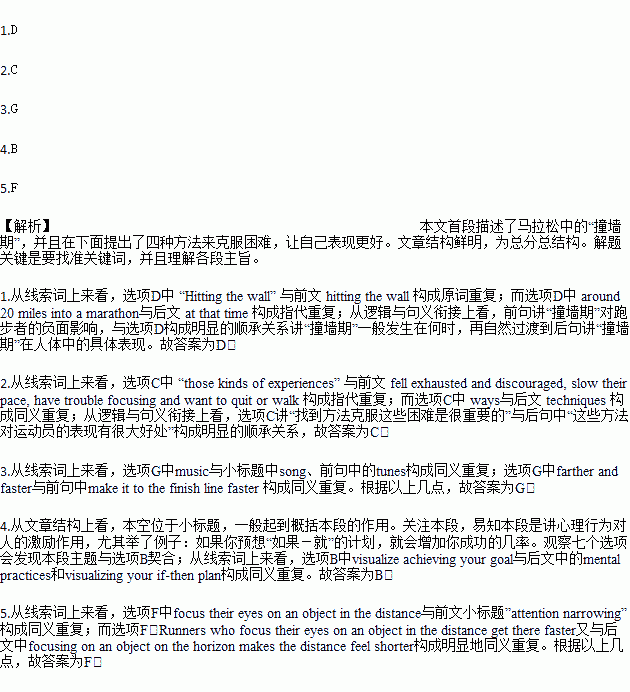题目内容
Distance runners often worry about “hitting the wall” during training or races,when negative thoughts become so overpowering that they make it difficult to continue.1. At that time,the body’s glycogen(糖原) supplies become exhausted.As a result,many runners feel exhausted and discouraged,slow their pace,have trouble focusing and want to quit or walk.2. Here are a few sports psychologist-approved techniques to try,which could have major benefits for an athlete’s performance and well-being.
1.Make a motivational song list.Distracting(分心) yourself with some great tunes can help you make it to the finish line faster.3.
2.Try the partner system.A running partner can keep you motivated and on-track,and might even improve your performance,research shows.
3.4. A study on weight-lifters found that mental practices can be as effective as physical practice,resulting in actual muscle increases.Visualizing your if-then plan,for instance,could improve your chance of success.
4.Try “attention narrowing”.5. Last year,an NYU study found that focusing on an object on the horizon makes the distance feel shorter,and leads runners to go faster and perform better than those who let their minds wander.
With these helpful strategies,your next personal record might be just around the corner.
A.Plan what to do.
B.Visualize achieving your goal.
C.Finding ways to move past those kinds of experiences is very vital.
D.“Hitting the wall” typically happens around 20 miles into a marathon.
E.There is evidence that saying motivational things to oneself benefits a lot.
F.Runners who focus their eyes on an object in the distance get there faster.
G.Studies show athletes run,bike and swim farther and faster when listening to music.




